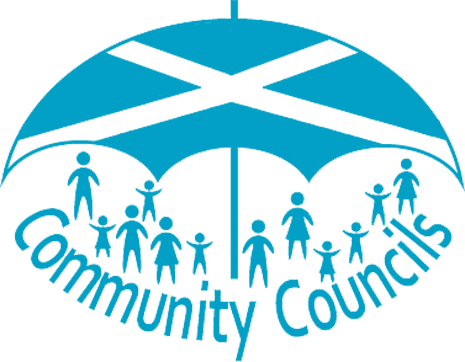Last Summer at a meeting of Community Council Liaison Officers (CCLOs) we were pleased to be able to welcome a very special guest speaker: Jackie Weaver.
Jackie became an unlikely internet sensation in 2021, when her no-nonsense approach to handling a belligerent meeting of Handforth Parish Council on Zoom became a viral hit across social media.
Despite her stardom, Jackie continued in her role as the Chief Officer of the Cheshire Association of Local Councils, which provides support for town and parish councils in England through the work of paid staff who “have the authority” to assist these organisations.
It was clear from the discussion at the meeting of CCLOs that this is a role which is unfamiliar to many people working with community councils in Scotland. North of the border, community councils are heavily reliant on their own members and perhaps co-opted volunteers to ensure the proper management of meetings and community council business.
However, paid clerks are an integral part of community councils’ work in two Scottish local authorities, Orkney and Shetland, and this case study looks at how the system operates in Shetland.
Overview
Paid clerks have played a role in the administration and financial matters of Shetland’s 18 community councils since their formation in the late 1970s. Each community council has their clerk, who is, generally, the point of contact for the community council and in charge of various daily business tasks that support the chairperson and the activities of the community councils. These tasks include setting up meetings, managing the agendas, taking minutes, dealing with correspondence, grant applications, managing accounts, and dealing with payments. Each clerk works on a self-employed basis, with hours varying from 20-40 hours per month depending on the size of the community council area. Core funding for Shetland’s 18 community councils comes from the Council to finance environmental services, budgets for roads, grants for local and district groups, and critically, to cover administration costs, including the clerks’ wages.
Using the context of Shetland, this case study will examine:
- The benefits and drawbacks of using clerks to aid community councils;
- The key resources clerks provide (notably, in relation to financial and technological aspects, and human resources);
- How the COVID-19 pandemic has impacted on the use of clerks;
- Any plans to continue the use of clerks in the future
The Benefits of Clerks
Using paid clerks to take care of much of the everyday business of community councils allows elected community councillors to focus on their role and responsibilities. For example, all community councillors can effectively participate in meetings, instead of one having to take a back seat while they take notes. In Shetland, a clerk takes a note of the records and the minutes and manages the paperwork in between meetings. The use of paid clerks removes some of the administrative workload otherwise placed upon volunteer community councillors to ensure that the time and efforts of community councillors are as efficient and as effective as possible. Furthermore, the clerks come from a range of backgrounds and jobs and therefore bring extensive and relevant experience and an additional set of skills that complement the work of community councils.
Key Resources
a) Finance
On an annual basis, clerks maintain the accounts of Shetland’s community councils. The clerks almost fulfil the role of a treasurer, looking after all the financial aspects of the community council, including bank statements and cheque payments. Furthermore, the clerks apply for council funding and grants to support future projects and process outstanding payments, such as meeting hires or paying out grants. They also provide the accounts to the council and vouch for any funding they receive. The clerks ensure that the community councils have accurate, up to date, budget reports.
b) Technology
Clerks are responsible for processing emails, inquiries, and applications on behalf of the community councils and distributing the minutes and agenda papers to community councillors. Additionally, during the COVID-19 pandemic, Shetland’s clerks have helped facilitate online meetings and have provided the community councillors with support and training on new online platforms, such as Microsoft Teams and Zoom.
c) Human Resources
Generally, the clerks have a close working relationship with the community council chairman to set agendas and combat any issues that arise at meetings. Furthermore, since the clerks maintain all the records, they can provide the relevant information to allow the chairman and other community councillors to make suitable decisions, e.g., regarding constitutional processes, take fair votes, and ensure that meetings are quorate.
Clerks and Impact of the COVID-19 Pandemic
Like elsewhere in Scotland, the start of the COVID-19 pandemic in March 2020 disrupted Shetland’s community councillors and clerks. Consequentially, the council implemented alternative measures to support their staff. They issued a set of COVID adaptive procedures and protocols allowing community council meetings to be conducted by telephone or online. As such, and with support from Shetland’s CCLO and community work staff, the community councillors and their clerks were able to resume meetings, make decisions, and continue their work.
The Future Use of Clerks
There are currently no plans to change the use of clerks working with Shetland’s community councils. The CCLO and community work team regularly communicate with the community councils and are currently undertaking a Training Needs Analysis about the work of clerks to ascertain what future training they might need. The training will be in the form of online classes and workshops that broaden the clerks’ skills so they can continue to work effectively with the community councils. Examples of the training topics include governance, maintaining finances, and managing projects.
Michael Duncan, CCLO for Shetland Islands Council, spoke to Sarah Quinn about the work of paid clerks in Shetland, and how community councils have benefitted from their support in this short video interview.
What the clerks think about working with community councils in Shetland

